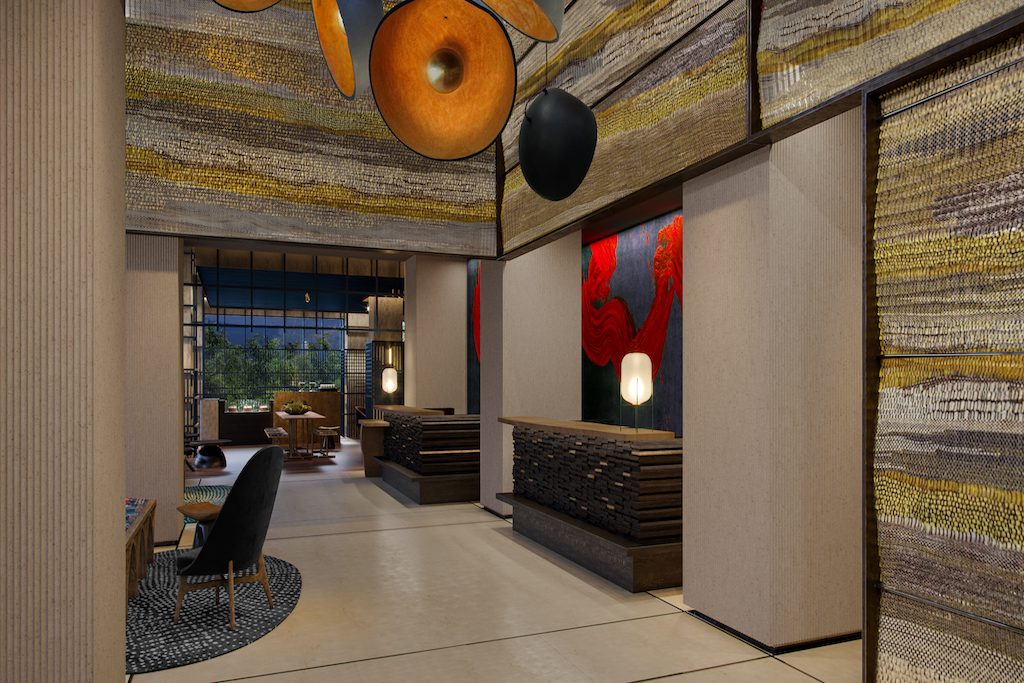Nobu Now Sees Lodging as Its 'Speedboat'

Skift Take
Nobu Hotels believes there are many advantages to running a hotel company as a successful restaurant operator.
The company’s established reputation as a dining destination all but guarantees real estate partners a significant return on investment on both its lodging and food and beverage offerings, according to CEO Trevor Horwell. Hospitality also comes second nature to the growing chain.
Nobu Hotels began in 1994 as a fine dining concept, before opening its first luxury hotel in Las Vegas in 2013. Horwell now calls Nobu Hotels’ lodging business “the speedboat of the company,” due to its fast expansion in the past decade.
The hotel chain operates nine hotels in several markets around the globe, including London, Manila, Barcelona, and Chicago. Nobu Hotels also expects to open five new properties by the end of the year. By the time it opens its 20th location, Horwell expects revenue for Nobu Hotels to exceed $600 million, excluding any contribution from its restaurant business of which the company now runs 42 worldwide.
Skift Editor’s Note: This interview has been edited for clarity and length.
Skift: With so many hotels trying to improve their food and beverage offerings, what advantage does Nobu Hotels have by starting out in the restaurant industry?
Trevor Horwell: I think starting in restaurants was one of the most contributing factors to us entering hotels. Many aspects in restaurants are woven into the hotel experience. We had advantages to where we could transfer the same business skills and culture from restaurants over to hospitality.
We can also easily transfer over our food and beverage business model because our restaurants do incredibly well already. Once you put that into a hotel, it’s a high-volume business. About 75 to 80 percent of restaurant business is from locals. We are also profitable in a way that most restaurants aren’t in hotels. We were able to bring a business model in a hotel that added value to the real estate of the hotel.
Skift: How often do locals come to eat at your hotel restaurants and also end up staying for the night?
Horwell: When we do a hotel, it’s not just about converting locals or customers to stay with us. We make sure the hotel restaurant is its own destination. We fill a hotel with guests and have restaurants have their own customer. A hotel needs its own customer, although the overall culture and service is seamless. A lot of chains bring in third-party restaurateurs, and it creates a little bit of a mismatch, and end up with a not really seamless operation.
Skift: Is it safe to say they come for the food, but stay for the hospitality?
Horwell: At the end of the day, the food is an important component to it, but at the same time, you can’t depend on hotel guests to fill restaurants. We serve 100,000 to 150,000 customers each year. If we capture 15 percent of that number, we fill the hotel. The number of people that stay in a hotel is far less than those that come into a restaurant. The hotel is a boutique offering and the restaurant is much more high volume.
Skift: Currently at nine luxury hotels worldwide, what more can we expect from the lifestyle hospitality group in terms of expansion?
Horwell: We know we have a good business and intend to grow it very carefully. Probably 40 locations in the next five to eight years, opening about four a year, is satisfactory for us.
From our perspective we have a good strategic foundation. What I mean by that is look at the markets we’re in. They are very well selected and fit with the Nobu Hotels customer.
We don’t just go into markets and plant flags because in the long term it would compromise the product. Hotel companies plant a flag and tell the owner “Look, we can give you this return.” But they are not adding value in both rooms and F&B returns.
All hotel companies lose money or break even on F&B. We make just as much in F&B as in the room. So we want to give owners a return on both. What’s the point of having F&B if it’s just there to service 20 guests a day?





